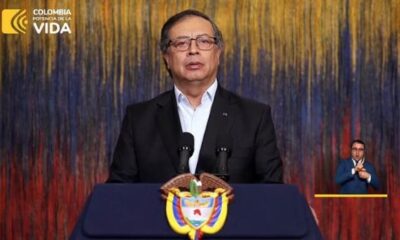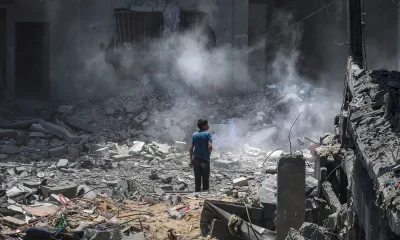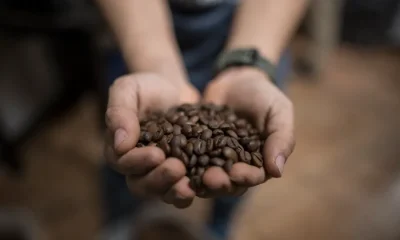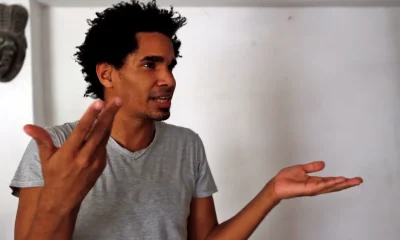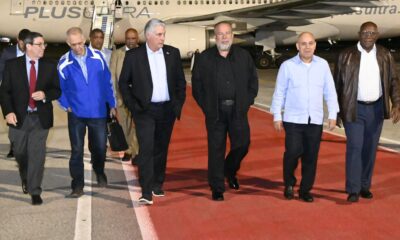International
Central Committee of the Communist Party of Cuba to hold VI Plenary Session
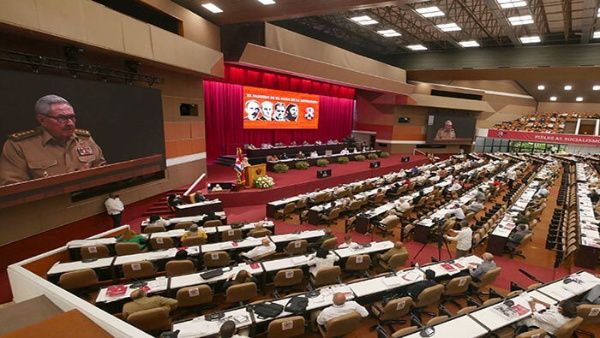
May 23 |
The Central Committee of the Communist Party of Cuba (PCC) will hold this Tuesday the VI Plenary to evaluate the fulfillment of the guidelines of the economic and social policy of the organization and the Revolution in the current context.
The member of the Secretariat and head of the productive economic department, Joel Queipo, explained that the conclave will fulfill the mandate of the Eighth Party Congress to systematically evaluate the implementation of the main guidelines of the Cuban socialist development model.
Likewise, the meeting will serve to verify the fulfillment of the guidelines of the economic and social policy of the Cuban Revolution in a context characterized by the worsening of the economic situation of the Caribbean nation, the international crisis and the intensification of the US blockade.
According to the communist leader, the grassroots structures of the PCC up to the level of the Central Committee give high priority to the analysis on the application of those strategies for the advancement of the country.
Since the last congress of the organization, there have been 1,200 signposts in more than 48,000 party nuclei in workplaces and communities, Queipo affirmed.
The cadre argued that the greatest concerns are in the primary sector of the economy; food production, transportation, difficulties with the supply of electric energy, housing construction, and the production and commercialization of medicines.
Queipo emphasized in his television appearance that the debates of the militancy have been critical, but from the commitment with the solution of the problems, convinced that the way to have a positive impact on the population is by increasing the supply of goods and services.
Roberto Morales Ojeda, member of the Political Bureau and Secretary of Organization of the CCPCC, pointed out that the next VI Plenum will include the discussion of two projects: one on the code of ethics for cadres and the other on the call for the Second Conference of the Party, next October.
International
Iran Reports 201 Dead, 747 Injured After U.S. and Israeli Strikes

The Iranian Red Crescent Society reported Sunday night (local time) that at least 201 people were killed and 747 injured following attacks carried out by Israel and the United States against the Islamic Republic.
A spokesperson for the humanitarian organization said more than 220 rescue teams have been deployed across affected areas and that relief operations are continuing without interruption. The official highlighted the difficulty of treating the large number of wounded and the urgent need for additional resources in impacted provinces.
Out of Iran’s 31 provinces, 24 have reported damage, according to a statement carried by the Isna news agency. This marks the first overall casualty toll released by Iranian state-affiliated media since the launch of the offensive.
Among the dead are 85 schoolgirls from a school in the southern city of Minab, according to the country’s judiciary. “The number of martyrs at the Minab girls’ school has risen to 85,” the local prosecutor’s office said, as quoted by the judiciary’s website, Mizan Online.
Iranian President Masud Pezeshkian described the attack as a “savagery” that “constitutes a new black page in the record of countless crimes committed by the aggressors.”
Meanwhile, the international community continues to monitor the situation closely amid concerns about possible further reprisals and the broader impact on Middle East stability, energy markets, and global security.
AFP noted that it was unable to independently verify the casualty figures or the circumstances surrounding the events.
International
Pope Leo XIV Urges End to ‘Spiral of Violence’ in Middle East

Pope Leo XIV on Sunday called for an end to the “spiral of violence” in the Middle East, following military strikes by the United States and Israel against Iran and subsequent retaliatory bombardments in the region.
“Faced with the possibility of a tragedy of enormous proportions, I urge the parties involved to assume their moral responsibility and stop the spiral of violence before it becomes an irreparable abyss,” the pontiff told the crowd gathered in St. Peter’s Square at the Vatican.
Speaking during the Angelus prayer, the U.S.-born pope said stability and peace cannot be achieved through threats or weapons. “Stability and peace are not built with reciprocal threats or with arms that sow destruction, suffering and death, but only through reasonable, sincere and responsible dialogue,” he declared.
The leader of the world’s 1.4 billion Catholics also called for diplomacy to “regain its role” amid escalating tensions.
In addition, the pope urged Afghanistan and Pakistan to urgently resume dialogue after several days of clashes between the two countries.
International
Security Council to Hold Emergency Meeting on Middle East Crisis

UN Secretary-General António Guterres on Saturday condemned the “military escalation in the Middle East” following attacks by the United States and Israel against Iran and Tehran’s retaliatory strikes, just hours before an urgent meeting of the UN Security Council.
“I call for the immediate cessation of hostilities and de-escalation,” Guterres said in a statement.
The Security Council is scheduled to meet on Saturday at 21:00 GMT (4:00 p.m. in New York) to address “the situation in the Middle East,” the United Nations announced.
The meeting, during which Guterres will deliver remarks, was convened at the request of France, Bahrain, Colombia, Russia and China, according to a diplomatic source.
-

 International5 days ago
International5 days agoFamily of “El Mencho” Seeks Return of Body After Deadly Military Operation
-

 International5 days ago
International5 days agoLarry Summers Steps Down from Harvard Role Amid Epstein Controversy
-

 International5 days ago
International5 days agoIran’s President Optimistic Ahead of Geneva Nuclear Talks with U.S.
-

 International5 days ago
International5 days agoBill Gates Admits “Serious Mistake” Over Epstein Ties
-

 International5 days ago
International5 days agoStephen Hawking Photo Appears in Newly Released Epstein Documents
-

 International4 days ago
International4 days agoCocaine Production Surges 34% in 2023 as Market Expands into Africa and Asia
-

 International3 days ago
International3 days agoTrump Floats “Friendly Takeover” of Cuba Amid Rising Tensions
-

 International22 hours ago
International22 hours agoIran Reports 201 Dead, 747 Injured After U.S. and Israeli Strikes
-

 International4 days ago
International4 days agoFederal Judge Blocks Trump Policy Allowing Deportations to Third Countries
-

 International22 hours ago
International22 hours agoPope Leo XIV Urges End to ‘Spiral of Violence’ in Middle East
-

 International3 days ago
International3 days agoArgentina’s Senate Reviews Milei-Backed Labor Overhaul
-

 International2 days ago
International2 days agoSecurity Council to Hold Emergency Meeting on Middle East Crisis
-

 Sin categoría2 days ago
Sin categoría2 days agoTrump: ‘We Think It’s True’ Amid Claims Iran’s Supreme Leader Was Killed
-

 International4 days ago
International4 days agoClinton Accuses Republican Committee of Using Epstein Case to Shield Trump



























